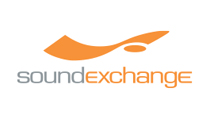This website uses cookies so that we can provide you with the best user experience possible. Cookie information is stored in your browser and performs functions such as recognising you when you return to our website and helping our team to understand which sections of the website you find most interesting and useful.
Business News Digital Labels & Publishers Legal Top Stories
US Copyright Royalty Board could rule on Pandora royalties today
By Chris Cooke | Published on Friday 11 December 2015

We could find out later today what rates will be paid in the coming years to the record industry by US-based online radio services that rely on the SoundExchange licence, with America’s Copyright Royalty Board due to announce the conclusion of its recent review of webcasting royalties any day now. Its deadline is actually next week, though various sources reckon an announcement could be made today.
As much previously reported, whereas AM/FM radio stations pay nothing to sound recording rights owners in the US, because of the whims of American copyright law, online and satellite radio services are obliged to pay royalties to labels and recording artists. However, a compulsory licence exists, meaning said labels and artists are obliged to license eligible services via the SoundExchange collective licensing system. The rates licensees pay are then set by the CRB.
The rates paid are particularly important because personalised radio services like Pandora qualify for a SoundExchange licence, and such services are by far the market-leading streaming platforms in the US. Therefore the monies the CRB decides Pandora-style services should pay has a big impact on the digital music market Stateside.
Pandora, of course, has gone to great effort over the years to keep its royalty bills down, by lobbying hard for the statutory rates it pays the labels to be reduced (while likewise arguing for a lower royalty obligation in the rate courts that control what it pays the music publishers via BMI and ASCAP).
This has resulted in an acrimonious relationship between the US music community and the American market’s biggest digital music service. Though actually, as the latest CRB review of webcasting, which will set rates for the next five years, has been underway, Pandora has been trying to build some bridges with the labels and especially the publishers.
There are various reasons for this, including Pandora’s recharged ambitions to expand into new markets where there is no equivalent of the SoundExchange compulsory license, and more recently to move into Spotify-style on-demand streaming which isn’t covered by that licence even in the US.
The labels, meanwhile, reckon Pandora gets too good a deal and that the rates it enjoys skew the wider digital market. Most Pandora users are also on the free version, and the record industry, of course, wants more people to shift over to paid-subscription services which are much more lucrative. Where labels have a direct licensing relationship with digital services they can structure deals to encourage licensees to prioritise their premium services, but such flexibility is not available when licensing is done via SoundExchange.
Bigger rights owners can also usually demand a higher rate in the direct licensing domain, and for a short time it looked like the CRB might consider such a system for SoundExchange licensing too. But, as previously reported, the US Register Of Copyrights Maria A Pallante said that that idea had been introduced into the review far too late in the day, and no such system could be introduced this time round.
So everyone will get the same. But quite what rates the CRB will set remains to be seen – will the Pandoras or the labels be smiling the most? Or will the CRB pretty much keep things as they are, rendering the entire laborious review pointless? We should know pretty soon.





